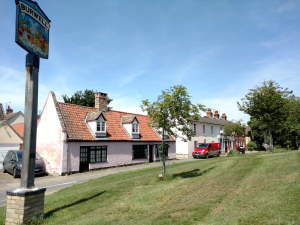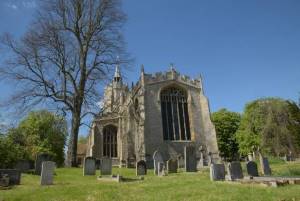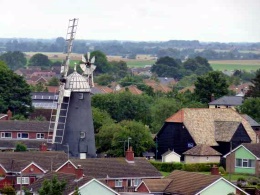Fire at Burwell - 1727
|
"Seventy six perished immediately and two more died of their wounds within two days." "The fire was occasioned by the negligence of a servant who set a candle and lanthorne in or near a heap of straw which lay in the barn. The servant's name was Richard Whittaker, from the parish of Hadstock in Essex, who was tried for the fact at an assize held in Cambridge on 27 March 1728 but was acquitted."
Three young children from my family died in the fire, and as I continued my research, I discovered a newspaper report dated 19th Feb. 1774 [47 years after the fire] - it reads as follows: "Deathbed Confession; a report reveals that an old man who died a few days ago at a village near Newmarket who just before his death seemed very unhappy. He said he had a burden to disclose. He then confessed that he had set fire to the barn at Burwell on Sept. 8th 1727, when no less than eighty persons unhappily lost their lives. He said he was an Ostler at the time, and that having an antipathy to the puppet showman, was the cause of his committing that diabolical action attended with such dreadful consequences." No name was published in the article, and a short note in the "Fenland Notes and Queries" supposes that Richard Whittaker was wrongly acquitted, but suggests delirium as he was nearing death. Written by Jean Matthews in about 1980 for the Peterborough FHS journal |
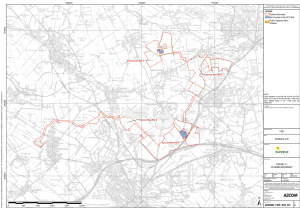
Latest Proposals
Project and
Current Status
(350 new homes)
Linden Homes
Web Site
Planning Docs
This Land -
Councillors
Express Concerns
This Land -
Council plays down
fears over loan
This Land Business Plan?
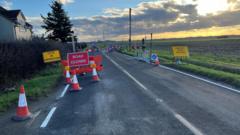 'Nightmare' road closure reopens three weeks early
'Nightmare' road closure reopens three weeks earlyThe B1049 Twenty Pence Road in Wilburton was closed to lay pipes and fix a leak, the water company says.
 What makes pothole repairs fail so often?
What makes pothole repairs fail so often?Your questions on potholes are answered by the Institution of Civil Engineers.
 East of England news quiz of the week
East of England news quiz of the week From a quirky race to historic buildings on TV, how many questions can you get right?
 Five dogs seized after suspected hare coursing
Five dogs seized after suspected hare coursingPolice say five people were also reported for various offences.
 Ambulance boss says staff bullying still an issue
Ambulance boss says staff bullying still an issueChief executive Neill Moloney says workplace culture is one the biggest challenges at the trust.
 Ice warning issued across East of England
Ice warning issued across East of EnglandThe Met Office has issued a 17-hour ice warning for the area and warns of "difficult travel conditions".
 Two women killed and man arrested after A10 crash
Two women killed and man arrested after A10 crashCambridgeshire Police is appealing for anyone with information to come forward.
 Study explores skin cancer and driving position
Study explores skin cancer and driving positionAnimesh Patel is hoping the results and further research will "better inform advice to motorists".
 Flowers and flour: One farmer's bid to turn a profit
Flowers and flour: One farmer's bid to turn a profitFlower farmer David Wheatley now mills unused grain and sells artisan flour via mail order.
 'Pep also loves golf and wanted to know what my handicap was'
'Pep also loves golf and wanted to know what my handicap was'Ex-cricketer Nick Knight's nephew Ben once played for Pep Guardiola at Manchester City - now January's League Two player of the month wants promotion with Cambridge.
 Duke of Wellington carriage design to be auctioned
Duke of Wellington carriage design to be auctionedThe drawing is an original 1852 design for the Duke's funeral carriage, approved by Prince Albert.































































